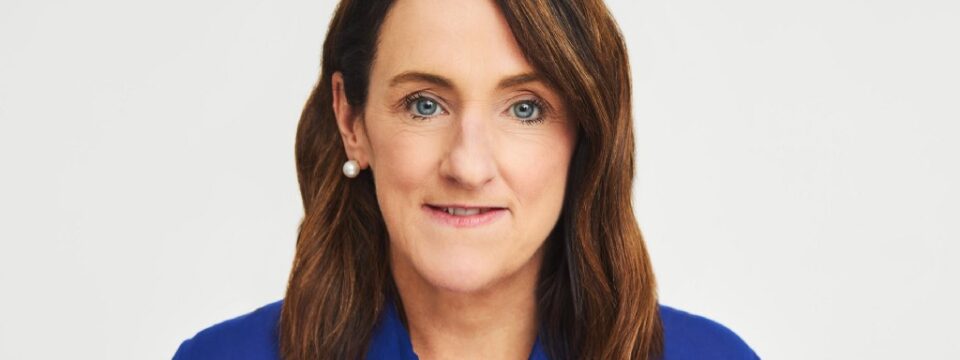The Great Resignation & The Future Of Work: CareerBuilder’s Sue Arthur On How Employers and Employees Are Reworking Work Together

Embrace change, be flexible and use the evolving landscape of how workers work as a competitive advantage. Meet employees where they are and accept that the future of the workplace is going to look different than it did two, three or five years ago. Excel at recruiting to keep up with the rate of change that is happening now and will continue to happen. Accepting and understanding that evolution will allow for retaining and attracting top talent in the coming years.
When it comes to designing the future of work, one size fits none. Discovering success isn’t about a hybrid model or offering remote work options. Individuals and organizations are looking for more freedom. The freedom to choose the work model that makes the most sense. The freedom to choose their own values. And the freedom to pursue what matters most. We reached out to successful leaders and thought leaders across all industries to glean their insights and predictions about how to create a future that works.
As a part of our interview series called “How Employers and Employees are Reworking Work Together,” we had the pleasure to interview Susan Arthur.
Sue Arthur is the CEO of CareerBuilder, a global talent marketplace, and has over 30 years of executive leadership with deep industry knowledge in the top industries CareerBuilder serves. She recently joined CareerBuilder in July 2021. Previously she spent nearly two years at Optum, where she served as Chief Operating Officer for the $10B technology and services division, OptumInsight. Prior to Optum, Arthur was Group President at NTT Data and has also held strategic leadership roles at DXC Technology, Hewlett Packard Enterprise, and Electronic Data Systems.
Thank you for making time to visit with us about the topic of our time. Our readers would like to get to know you a bit better. Can you please tell us about one or two life experiences that most shaped who you are today.
My entire career has been in the technology and technology services industry and in those 25+ years, I have experienced constant advancements, evolution and transformation. It’s because of this experience that I know how imperative it is to think three, four, five, ten steps ahead. I’m always trying to balance what our needs are today with what they will be in five years. There is so much competition and so much brilliance, that I’m always brainstorming how to stay relevant, innovative and nimble in these transformative years. It is important to respect innovation, be adaptable to change and have the ability to continually deliver new value.
Let’s zoom out. What do you predict will be the same about work, the workforce and the workplace 10–15 years from now? What do you predict will be different?
Companies with a clear purpose, a strong culture and a powerful mission, who also value their employees will stand the test of time. Creating an environment where people can thrive is equally important.
What advice would you offer to employers who want to future-proof their organizations?
Embrace change, be flexible and use the evolving landscape of how workers work as a competitive advantage. Meet employees where they are and accept that the future of the workplace is going to look different than it did two, three or five years ago. Excel at recruiting to keep up with the rate of change that is happening now and will continue to happen. Accepting and understanding that evolution will allow for retaining and attracting top talent in the coming years.
We simultaneously joined a global experiment together last year called “Working From Home.” How will this experience influence the future of work?
The work-from-home experience allows us to have access to broader talent pools. It creates an opportunity to work differently and to embrace new technologies.
What is your greatest source of optimism about the future of work?
The talent in our country and our world continues to motivate me. Technology and education keep driving us to new innovation. As kids keep getting smarter, they will eventually give us a larger and more talented pool of prospective employees in the future.
Our collective mental health and wellbeing are now considered collateral as we consider the future of work. What innovative strategies do you see employers offering to help improve and optimize their employee’s mental health and wellbeing?
The employer’s role is to be open and flexible to different opportunities and programs to better support an employee’s wellbeing and mental health. We should be encouraging and embracing new programs that prioritize our employees’ health, including their mental health.
It seems like there’s a new headline every day. ‘The Great Resignation’. ‘The Great Reconfiguration’. And now the ‘Great Reevaluation’. What are the most important messages leaders need to hear from these headlines? How do company cultures need to evolve?
The Great Resignation and other similar headlines offer leaders the opportunity to embrace change, be flexible and understand that your workforce is going to continually be different so it’s best to prepare by staying one step ahead.
Let’s get more specific. What are your “Top 5 Trends To Track In the Future of Work?” (Please share a story or example for each.)
- Workers stay in control. We are entering 2022 with workers staying in control and taking charge in new roles with companies that have added benefits, flexibility and increased wages.
- Explosive growth in job postings. A cumulative mix of increased supply chain demand, a rise in resignations and companies continuing to recover from the pandemic will result in thousands of open jobs and an explosive growth in online job postings.
- Diversity takes a front seat. DE&I will take a front seat in 2022 and be a prime focus for job seekers as they look to join companies that are actively improving these efforts across all levels with active programs that further enhance these initiatives.
- A year of hope for recent grads. Labor shortages will continue to steer the job market making 2022 a year of hope for recent grads as they enter the job force with benefit packages and competitive wages that are vastly improved from past years.
- Employers to approach hiring demand with upskilling. “As job postings and the demand for candidates continues to increase, we will see employers get creative in their approach to skill development and training as a way to fill the existing skills gap and accelerate promotions.”
I keep quotes on my desk and on scraps of paper to stay inspired. What’s your favorite “Life Lesson Quote”? And how has this quote shaped your perspective?
My favorite quote is “Run the company so the best people love it” — meaning create a culture where folks can thrive that I follow every day.
We are very blessed that some of the biggest names in Business, VC funding, Sports, and Entertainment read this column. Is there a person in the world, or in the US, with whom you would love to have a private breakfast or lunch, and why? He, she, or they might just see this if we tag them.
Really I’d love to meet with my dad again. He died when I was in my early 20s. He had an infectious joie de vivre and relentless belief in human potential. Why? To thank him for the inspiration those traits continue to provide me today.
Our readers often like to continue the conversation with our featured interviewees. How can they best connect with you and stay current on what you’re discovering?
You can see what I find interesting and connect with me by following me on Linkedin https://www.linkedin.com/in/susan-arthur-a263a27
Thank you for sharing your insights and predictions. We appreciate the gift of your time and wish you continued success and good health.
The Great Resignation & The Future Of Work: CareerBuilder’s Sue Arthur On How Employers and… was originally published in Authority Magazine on Medium, where people are continuing the conversation by highlighting and responding to this story.
